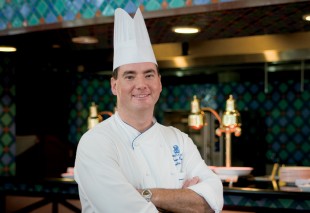

Aujan aims for the soda sales crown

Established KSA-based drinks firm gears up for bullish beverage expansion in regional market
Saudi Arabia-based soft drink giant Aujan Industries is aiming to become the region’s leading soda distributor, ahead of traditional household brands such as Coca Cola and Pepsi.
Commenting on the established multinationals, chairman Adel Aujan insisted the company had the capacity to rival them.
“We have the skills, the financial muscle, the creative marketing, the corporate governance — and on top of that, we have the local knowledge,” he pointed out. “There’s no question that we can compete.”
Today, courtesy of its brands Rani, Vimto and Barbican, Aujan is the largest drinks firm in the GCC, with more than 2500 employees and roots in 26 countries.
The firm saw a rise of more than 20% in revenue in 2009, and is expecting a similar hike this year.
“We’re in the one-riyal business,” explained Aujan. “It’s anti-cyclical; we do better in recessions than upturns.
“People don’t buy expensive things in a recession, but buy more of the low-priced items to compensate.”
The firm is aiming to generate US $1 billion in sales by the end of 2012.
Currently running three plants — in its key markets, Saudi Arabia, the UAE and Iran — two more will be added to the portfolio over the next two years.
Politics permitting, one is slated for development in Iraq.
“The volume [there] is huge,” Aujan asserted. “The arithmetic demands a plant but [Iraq’s] got to stabilise first. As soon as it does, we’ll move on it.
“But the growth story isn’t over for us in the Gulf — the area has a long way to go. These are still priority markets for us.”
Tech advances enhance recruitment
Modern technology is helping F&B operations hire the right people, according to recruitment professionals.
Vivek Singh, HR director at The Address Dubai Marina, explained: “The way we go about recruiting in this region — where a lot of new hospitality staff are brought in from other countries — has completely changed, thanks to technological advancements.
“Nowadays we can use Linked In as a tool to get references, or conduct an interview via Skype, or employ social networks as a tool to find candidates.
“Everyone uses these methods now, and really it’s more comfortable — if you can interview face-to-face as opposed to over the phone, you can connect better.”
Singh added that, with operators around the world increasingly turning back to a selection process — using talent-based or strength-based tools to select staff — technology had another key role to play.
“Everyone seems to be trying to get the right tool into their selection process,” he revealed. “The right programme can help us find like-minded people; we are working on that right now.”
Al Manzil and Qamardeen Hotels’ F&B manager CD Kotze agreed this technology could “help a great deal in identifying the right person for a role.”
Taste for learning helps industry
The growing consumer thirst for food knowledge is helping drive business and move the F&B industry forward, say Middle East chefs.
According to Ritz-Carlton Doha executive chef Matthew Morrison, running in-house cooking classes can be a major benefit for a restaurant.
“Giving people more information about what they’re eating and how they can make easy meals themselves shows them that, when they come to our restaurants, they are getting great quality food,” he explained.
“It also gives them an insight into how much work goes into making and producing everything in-house.”
Morrison added that customers who built up relationships with the chef, restaurant manager or the waiting staff often felt more comfortable about coming to the outlet to dine.
Artistic creations key to F&B success
Taste may be important, but presentation is becoming a major focus of the food and beverage world, according to the region’s kitchen artists.
“It is a well known fact that before you put any food in your mouth, you ‘taste’ a dish with your eyes,” commented Renaissance Dubai Hotel pastry chef Achala Weerasinghe.
“A dish might be delicious, but if the chef has neglected to add attractive colour, texture and volume to the plate, the customer could well reject it.”
Dubai World Trade Centre (DWTC) kitchen artist Lifeng Dong — winner of the gold medal for Best Kitchen Artist at Salon Culinaire 2010 — added: “Incorporating kitchen art into a buffet display, or even a single dish, offers a uniquely innovative and creative element which positively impacts the guest experience.”
According to Beach Rotana executive sous chef Raghu Pillai, the regional culinary scene is “passing through a period of renaissance”.
“Many people today have travelled extensively and seen and tasted many different cuisines, so chefs have to come up with bold new concepts and ideas to attract interest,” he noted.